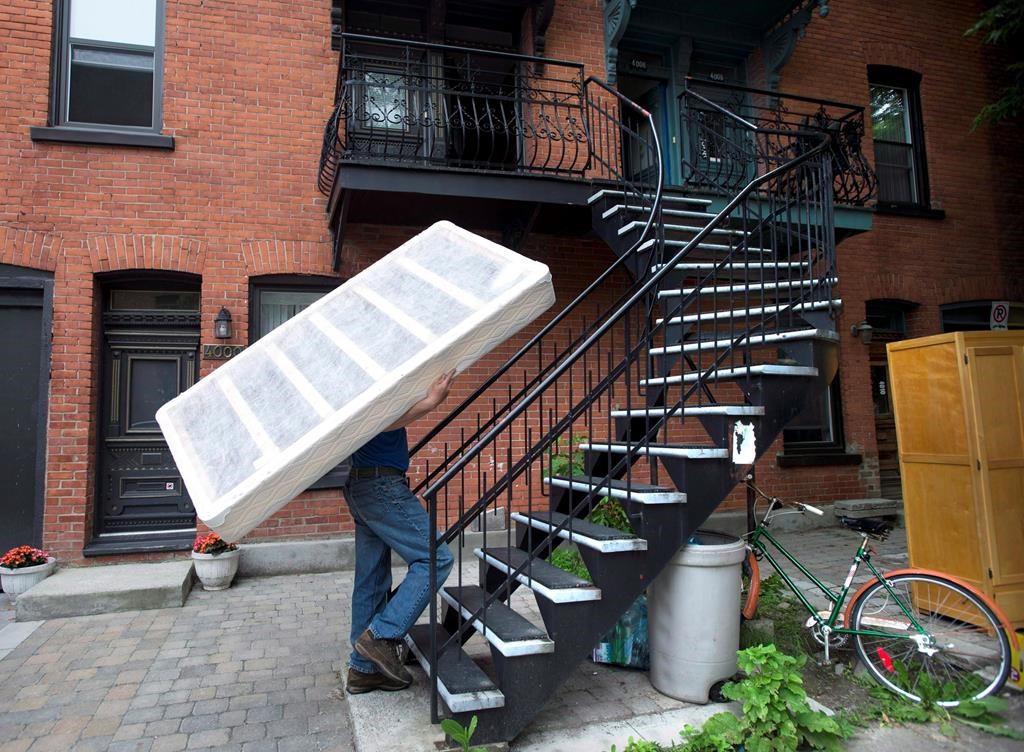As a growing housing shortage continues to affect tenants in Montreal, the city is offering a helping hand to landlords to renovate low-rise apartment buildings in the area.

Mayor Valérie Plante said Réno logement abordable, which is an update to a previous program, will keep apartments from falling into disrepair and hopefully help keep Montreal rents affordable.
“Tenants need to stay in the house or the apartment,” said Plante. “We don’t want them to go.”
The initiative, which comes into effect April 1, is part of the Plante administration’s bid to create 12,000 more social and affordable housing units in the city as renters face a 15-year low for vacancies.
READ MORE: Montreal apartment vacancy rates hit 15-year low: report
Under the program, the city estimates about 700 dwellings will be renovated on an annual basis. Property owners are eligible to receive up to $14,000 per dwelling for a total amount of up to $500,000 for an apartment building.
Landlords who want to renovate their dwellings will have to meet several conditions in order to be eligible for the subsidy. Their residential buildings must include at least six apartment units and be no more than five floors.
They will also have to hire housing experts to create plans for the renovations and the city will carry out its own inspection of the building before landlords can receive financial aid.

Get breaking National news
“Those conditions will have to be filled,” said Plante.
READ MORE: Montreal to propose new rules to increase affordable housing
Landlords could also have to carry out work deemed compulsory by the city, such as replacing an oil heating system and lead service pipes.
As part of the plan, tenants must also be allowed to stay in their apartments. If that’s not possible, landlords have to find their tenants other housing or compensation before allowing them to come back to a renovated apartment.
While Plante said the program will help landlords and tenants alike, housing advocacy groups are worried.
The Regroupement des comités logement et associations de locataires du Québec (RCLALQ) said in a statement it is concerned that landlords could impose excessive rent increases based on renovations.
“Although the city will inform the tenants of the granting of a subsidy, nothing will prevent the owners from ignoring the calculation grid of the Régie du logement,” said RCLALQ.

The Front d’action populaire en réaménagement urbain gave a lukewarm welcome to the initiative. The organization said it needs the city to provide more details on how the program will work and follow-ups will be done.
Spokesperson Véronique Laflamme said she is also unsure why the new measures are part of the city’s plan for affordable housing since it will not create new affordable housing.
“Even if we recognize the need to improve the condition of housing in Montreal, it is still public funds that will go to private owners who will collect juicy profits on resale,” she said.
However, Plante said tenants will be given notice of all the work carried out — and they will be able to judge if any rent increases are unfair.
“For sure what we’re saying today is we want to support tenants to contest a raise if they feel it’s not appropriate,” she said. “This is pretty much at this point what we can do to make sure people don’t get in the streets for renovations.”
Robert Beaudry, the executive committee member responsible for housing, said that after the work is carried out, the city will do follow-ups with the landlords for at least three years. If the situation is deemed “incorrect,” he said, the city will order the owners to give back the subsidy.








Comments
Want to discuss? Please read our Commenting Policy first.